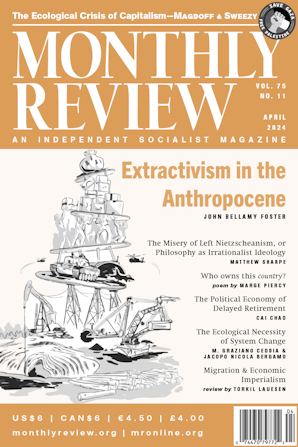Also in this issue
- Extractivism in the Anthropocene
- On the Misery of Left Nietzscheanism, or Philosophy as Irrationalist Ideology
- Old Age but No Rest: A Political-Economic Reflection on Delayed Retirement Policy
- Who owns this ‘country’?
- The Ecological Crisis of Capitalism and Human Survival
- The Political Economy of Migration
Article by The Editors
- February 2026 (Volume 77, Number 8)
- January 2026 (Volume 77, Number 8)
- December 2025 (Volume 77, Number 7)
- November 2025 (Volume 77, Number 6)
- October 2025 (Volume 77, Number 4)
- September 2025 (Volume 77, Number 4)
- July-August 2025 (Volume 77, Number 3)
- June 2025 (Volume 77, Number 2)
- May 2025 (Volume 77, Number 1)
- April 2025 (Volume 76, Number 11)

